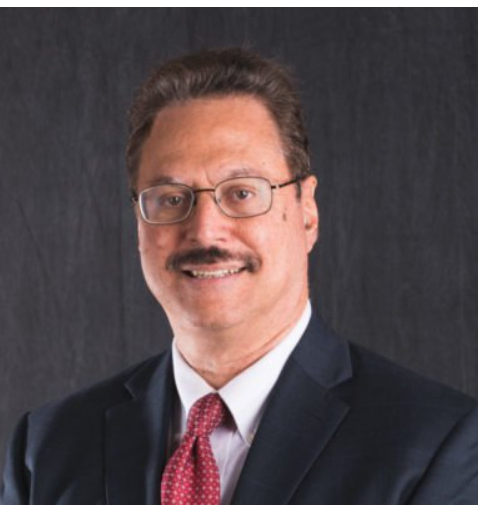During a closed-door gathering on July 31 at the Family Research Council’s Washington headquarters, Christian leaders convened to address a growing and troubling phenomenon: rising antisemitism within the political right. Tony Perkins opened the private roundtable, co-sponsored by the Family Research Council and the Conference of Christian Presidents for Israel, invoking a prayer for clarity in the face of confusion and for the strength to act with purpose. This spiritual invocation paved the way for deeper discussion on confronting antisemitism among those who claim to take a pro-Israel stance.
Mario Bramnick, pastor at New Hope Ministries and president of the Latino Coalition for Israel, co-founded the Conference of Christian Presidents for Israel and used the occasion to announce the formation of a specialized task force. Its mission: to identify and hold accountable those on the right propagating anti-Israel rhetoric and antisemitic ideas—an act of moral courage that Bramnick stressed was long overdue.
Luke Moon of the Philos Project, also a co-founder of the conference, spoke candidly about the ideological shifts he had witnessed. Initially, his focus was on extremist groups such as the Goyim Defense League, notorious for distributing anti-Jewish materials in neighborhoods. That changed dramatically after the Hamas-led attacks of October 7, 2023, when leftist and Islamist antisemitism dominated discourse. Then, without warning, antisemitic sentiments began creeping into the rhetoric of the political right. Moon described this as a metastasis, fueled by prominent podcasts and media platforms. Podcasts associated with Trump figures featured formerly pro-Israel personalities like Candace Owens, now spreading conspiracies, while Joe Rogan hosted known antisemitic conspirators like Ian Carroll for marathon interviews. Tucker Carlson, in a particularly controversial September appearance, hosted Holocaust revisionist Darryl Cooper, whose appearance on Carlson’s show ignited a rare and powerful wave of bipartisan criticism.
Bramnick highlighted how Carlson—alongside others like Steve Bannon and Representative Marjorie Taylor Greene—had shifted rhetorical gears, now accusing pro-Israel advocacy groups such as AIPAC of acting as foreign agents under the Foreign Agents Registration Act. He underscored Carlson’s promotion of replacement theology, portraying Judaism as obsolete, and warned that such theological notions had historically led to tragedies—from the Crusades to pogroms to the Holocaust.
The Israel Today report echoed the importance of Bramnick’s announcement, noting that he had emphasized the task force’s role in “calling out the perpetrators of anti-Israel rhetoric and antisemitism” and in ensuring accountability for those spreading such dangerous ideas.
Beyond the roundtable, Bramnick has mobilized Christian pro-Israel efforts on multiple fronts. In February 2025, he joined a coalition of religious leaders in Washington to lend public support to former President Trump’s controversial proposal to relocate Gaza’s civilian population to Egypt and Jordan, framing the plan as both legally defensible and morally bold, even amid regional rejection.
Earlier, in September 2024, Bramnick had played a leading role in forming the Conference of Presidents of Christian Organizations in Support of Israel, modeled after the longstanding Jewish-based umbrella organization. That initiative emerged from strategy gatherings between Christian Zionist leaders. It was positioned as a means to unify disparate faith-based pro-Israel voices into a more cohesive and influential force.
Incredible meeting today with Pastor Mario Bramnick, co-chairman and founder of Conference of Christian Presidents for Israel. His leadership is energizing a powerful coalition of Christian support for Israel.
— Leo Terrell (@LeoTerrellDOJ) August 6, 2025
We are both proud and grateful to have a friend and ally in… pic.twitter.com/BYB2G9rILv
His role extends to international engagement as well. In February, Bramnick stood alongside around twenty evangelical leaders at Blair House for a high-profile meeting with Israeli Prime Minister Benjamin Netanyahu just before his Oval Office visit. Bramnick described the encounter as historic, speaking of an alignment of prophetic destiny and unwavering support for Israel, especially under pressure from what he characterized as a politically motivated assault on Israel’s right to self-defense.
Perhaps most emblematic of the broader movement he embodies, Bramnick helped launch the Christian Conference of Presidents in Jerusalem. That initiative aims to mobilize grassroots and legislative support for Israel further, focusing on bolstering U.S.–Israel relations, reinforcing Israel’s sovereignty over contested regions, and standing firm against antisemitism throughout North America.
Bramnick’s leadership shines through vividly: whether through organizing Christian Zionists, addressing inflammatory rhetoric within conservative media, or supporting policy initiatives and international diplomacy, he is harnessing faith and strategy together to challenge the growing tide of antisemitism on the political right. The task force he introduced marks a bold new chapter—one that insists advocacy for Israel must include speaking truth to power, even when that power is within the fold.




